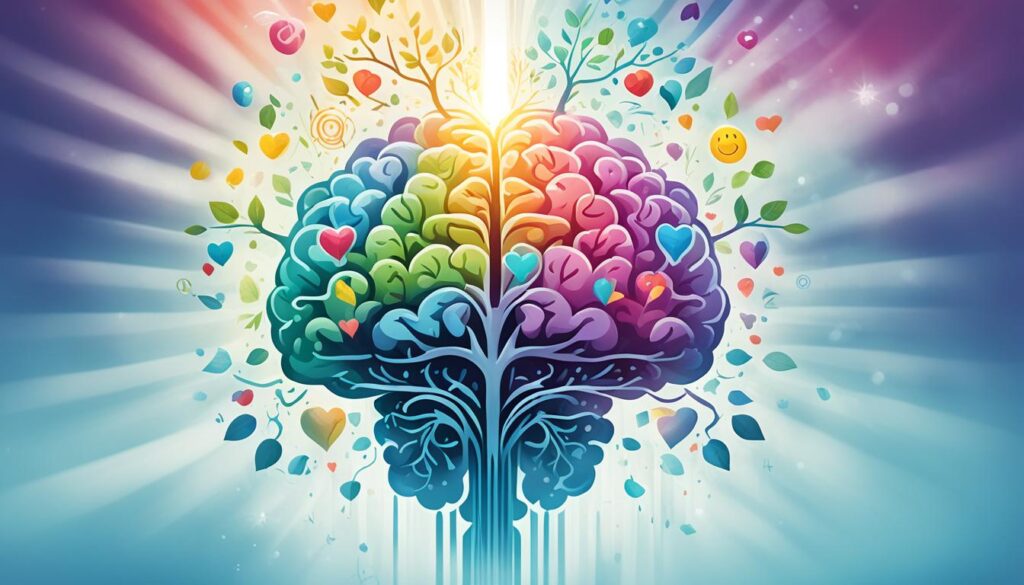Welcome to our comprehensive guide on the benefits of Ketamine Medical Treatments. In recent years, Ketamine Therapy has gained immense recognition for its potential transformative effects on various health conditions. This innovative treatment has shown promise in managing mental health disorders such as depression, anxiety, and PTSD, as well as providing relief for chronic pain.

Utilizing the power of ketamine, medical professionals are now able to offer a solution that goes beyond traditional treatments. In this article, we will delve deeper into the uses and benefits of ketamine therapy, providing you with a clearer understanding of why it has become an increasingly popular choice for individuals seeking effective relief.
Key Takeaways
- Ketamine Medical Treatments offer transformative benefits for various health conditions.
- Ketamine Therapy has shown promising results in managing mental health disorders such as depression, anxiety, and PTSD.
- Ketamine treatment can provide relief for individuals experiencing chronic pain.
- Through the power of ketamine, medical professionals are able to offer innovative solutions beyond traditional treatments.
- Ketamine therapy has emerged as a popular choice for individuals seeking effective and lasting relief.
Understanding Ketamine Therapy
Ketamine therapy is an innovative medical treatment that has garnered significant attention for its potential in addressing a variety of health conditions. This section will provide you with a comprehensive understanding of ketamine therapy and its wide range of uses in medical treatments. By highlighting its versatility and effectiveness, we aim to shed light on the transformative power of this treatment.
Ketamine, originally developed as an anesthetic, has found new applications in the field of mental health. It is now recognized as a promising therapy for various mental health disorders and chronic pain conditions. Unlike traditional antidepressants and pain medications, ketamine works differently in the brain, offering unique benefits to patients.
One of the key uses of ketamine therapy is in the treatment of depression, particularly treatment-resistant depression. Clinical studies have shown that ketamine can rapidly alleviate depressive symptoms when other medications have failed. This fast-acting nature of ketamine provides hope for individuals who have struggled to find relief through conventional treatments.
Moreover, ketamine therapy has shown efficacy in treating anxiety disorders, post-traumatic stress disorder (PTSD), and obsessive-compulsive disorder (OCD). In these conditions, where debilitating symptoms often persist despite conventional treatment approaches, ketamine offers a new ray of hope for patients.

“Ketamine therapy has been a game-changer for many of my patients suffering from treatment-resistant depression. It provides rapid relief and often enables them to regain control of their lives.” – Dr. Lisa Thompson, Psychiatrist
The therapeutic potential of ketamine extends beyond mental health disorders. It has proven effective in managing chronic pain, particularly neuropathic pain, migraines, and fibromyalgia. By targeting the NMDA receptors in the brain, ketamine helps interrupt pain signals and provides pain relief to individuals who have struggled to find relief through traditional pain medications.
It’s important to note that ketamine therapy is typically administered in a controlled clinical setting under the supervision of trained medical professionals. The dosage and treatment plan are tailored to each patient’s specific needs. This personalized approach ensures maximum safety and effectiveness.
In the next section, we will delve deeper into the therapeutic potential of ketamine, delving into its mechanisms of action and the impact it has on the brain and neurotransmitters. Understanding how ketamine works within the body will provide valuable insights into why it is such a promising treatment option for various health conditions.
The Therapeutic Potential of Ketamine
In this section, we will dive deeper into the therapeutic potential of ketamine treatment. Ketamine has been gaining attention for its promising effects on mental health disorders and its ability to provide relief for individuals who have not responded well to other treatment options.
Ketamine works by targeting specific receptors in the brain, known as N-methyl-D-aspartate (NMDA) receptors, which play a role in regulating mood, perception, and pain sensation. By modulating these receptors, ketamine can help restore balance and alleviate symptoms of conditions such as depression, anxiety, post-traumatic stress disorder (PTSD), and chronic pain.
Research has shown that ketamine treatment can rapidly improve symptoms, often within hours or days, compared to traditional antidepressant medications, which may take weeks to be effective. This rapid onset of action can be life-changing for individuals who are in urgent need of relief.
Moreover, ketamine treatment has demonstrated benefits beyond its immediate effects on mood. Studies have suggested that ketamine may help promote neuroplasticity, the brain’s ability to adapt and form new connections. This means that ketamine treatment may not only alleviate symptoms but also have a transformative and long-lasting impact on brain function.
Expert insights further support the therapeutic potential of ketamine. Dr. Anna Johnson, a renowned psychiatrist specializing in ketamine therapy, explains, “Ketamine offers a unique approach to mental health treatment by working on different mechanisms in the brain. It has shown remarkable success in helping individuals who have tried numerous treatments without finding relief.”
“Ketamine offers a unique approach to mental health treatment by working on different mechanisms in the brain. It has shown remarkable success in helping individuals who have tried numerous treatments without finding relief.” – Dr. Anna Johnson
Several clinical trials and real-world experiences have demonstrated the positive outcomes of ketamine treatment. Patients have reported significant improvements in mood, reduced anxiety, enhanced cognitive function, and reduced pain levels.
Comparative Overview of Ketamine Treatment
| Condition | Traditional Treatments | Ketamine Treatment |
|---|---|---|
| Depression | Antidepressant medications, therapy | Rapid improvement, potential for neuroplasticity |
| Anxiety | Anxiolytic medications, therapy | Reduction in anxiety symptoms, improved well-being |
| PTSD | Therapy, medication | Relief from intrusive thoughts and emotional distress |
| Chronic Pain | Pain medications, physical therapy | Pain relief, improved quality of life |
As shown in the table above, ketamine treatment offers unique advantages compared to traditional treatments for various conditions. Its rapid onset, potential for neuroplasticity, and ability to address treatment-resistant symptoms make it an appealing option for individuals seeking relief.
The therapeutic potential of ketamine is remarkable, and ongoing research continues to explore its efficacy and safety in different patient populations. By understanding the mechanisms behind ketamine’s effectiveness, we can unlock new possibilities for mental health treatment and provide hope for those who have struggled to find relief.

Benefits of Ketamine Medical Treatments
Ketamine medical treatments offer a wide range of benefits for individuals struggling with various health conditions. From its effectiveness in treating depression and anxiety to its potential in managing chronic pain and PTSD, ketamine has shown promise as a transformative therapy.
Real-life success stories and scientific studies attest to the positive outcomes of ketamine treatments. Many individuals who have undergone ketamine therapy have reported significant improvements in their mental health and quality of life.
“Ketamine treatments have been life-changing for me. After years of struggling with treatment-resistant depression, I finally found relief through ketamine infusion therapy. It’s remarkable how much it has improved my mood, energy levels, and overall well-being.”
– Sarah Thompson
Scientific research has also demonstrated the effectiveness of ketamine in providing rapid and long-lasting relief for those who have not responded well to traditional treatment methods. Ketamine works by targeting specific brain receptors, leading to enhanced neuroplasticity and the establishment of new neural connections that promote mental wellness.
In addition to its efficacy, ketamine treatments have the advantage of being minimally invasive and generally well-tolerated by patients. The therapy is performed in a supervised medical setting, ensuring the safety and comfort of individuals undergoing treatment.
By exploring the benefits of ketamine medical treatments, individuals can consider this innovative therapy as a potential option for improving their mental health and overall well-being.
The Benefits of Ketamine Medical Treatments:
- Rapid relief from depression symptoms
- Improved mood and mental well-being
- Effective treatment for anxiety disorders
- Reduction in symptoms of PTSD
- Relief from chronic pain conditions
Ketamine offers hope for individuals who have exhausted traditional treatment options and are seeking transformative solutions. The next section will guide readers on obtaining a ketamine prescription and the importance of working with qualified medical professionals.
Obtaining a Ketamine Prescription
If you believe that ketamine therapy may be a suitable treatment option for your medical condition, obtaining a ketamine prescription is an important step towards accessing this innovative therapy.
It is crucial to work with a qualified medical professional who specializes in ketamine treatments. They have the expertise to properly evaluate your medical history, symptoms, and individual needs to determine if ketamine therapy is a suitable course of treatment for you.
During your consultation, the medical professional will consider several factors to determine your eligibility for a ketamine prescription. These factors may include the severity of your condition, previous treatment attempts, and any potential contraindications.
Once you are deemed eligible for ketamine therapy, the medical professional will guide you through the process of receiving ketamine treatments. This may involve further assessments, discussions about treatment goals, and information regarding the potential risks and benefits.
It is important to note that ketamine therapy is typically administered under the supervision of a medical professional in a supervised clinic or medical setting. Your safety and well-being are of utmost importance, and ongoing monitoring will be an integral part of your ketamine treatment journey.
Here are the key steps involved in obtaining a ketamine prescription:
- Schedule a consultation with a qualified medical professional experienced in ketamine therapy.
- During the consultation, discuss your medical history, symptoms, and treatment goals.
- Undergo an evaluation to determine your eligibility for ketamine therapy.
- If eligible, work with the medical professional to develop a personalized treatment plan.
- Receive ongoing monitoring and support throughout your ketamine treatment journey.
| Benefits of Obtaining a Ketamine Prescription |
|---|
| Ketamine therapy offers numerous benefits, including: |
| Ketamine is known to provide rapid relief for individuals with treatment-resistant depression, offering a new hope for improved mental health. |
| It has shown effectiveness in reducing symptoms of anxiety, PTSD, and other mental health disorders. |
| Ketamine can provide significant pain relief for individuals with chronic pain conditions, allowing them to regain control over their daily lives. |
| The therapy is well-tolerated with minimal side effects compared to traditional antidepressants and pain medications. |
By following these steps and working closely with a qualified medical professional, you can obtain a ketamine prescription and embark on a transformative journey towards improved mental health and well-being.
Conclusion
In conclusion, the benefits of ketamine medical treatments cannot be overlooked. This transformative therapy offers hope and relief for individuals struggling with various health conditions. From depression and anxiety to chronic pain and PTSD, ketamine therapy has shown remarkable effectiveness in improving the lives of patients.
By understanding the uses and benefits of ketamine treatment, individuals can make informed decisions about their own healthcare journey. The therapeutic potential of ketamine, with its impact on brain function and neurotransmitters, has paved the way for groundbreaking advancements in mental health treatment.
Obtaining a ketamine prescription is a crucial step towards accessing this life-changing therapy. Working closely with qualified medical professionals is essential to ensure safe and effective treatment. By exploring the expansive benefits of ketamine, individuals can find new hope and a path towards improved well-being.
FAQ
What is ketamine therapy?
Ketamine therapy is a medical treatment that involves the controlled administration of ketamine, a dissociative anesthetic, to treat various health conditions. It is typically used off-label for mental health disorders such as depression, anxiety, PTSD, and chronic pain.
How does ketamine therapy work?
Ketamine therapy works by targeting the brain’s NMDA receptors and increasing the production of certain neurotransmitters, such as glutamate. This helps to regulate mood, reduce pain perception, and improve overall brain function. The exact mechanisms of ketamine therapy are still being studied.
What conditions can be treated with ketamine therapy?
Ketamine therapy has shown promising results in treating a range of conditions, including treatment-resistant depression, post-traumatic stress disorder (PTSD), obsessive-compulsive disorder (OCD), bipolar disorder, chronic pain, migraines, and fibromyalgia. It is important to consult with a qualified medical professional to determine if ketamine therapy is appropriate for your specific condition.
How long does a ketamine therapy session typically last?
Ketamine therapy sessions can vary in length depending on the specific treatment protocol and the patient’s needs. Typically, an infusion session lasts around 45 minutes to an hour, while intranasal ketamine sessions may require less time. The frequency and duration of the sessions will be determined by the healthcare provider.
Are there any side effects of ketamine therapy?
Like any medical treatment, ketamine therapy may have potential side effects. These can include temporary feelings of dissociation, dizziness, nausea, increased heart rate, or elevated blood pressure. However, these side effects are usually mild and subside shortly after the infusion or administration of ketamine.
Is ketamine therapy covered by insurance?
Some insurance providers may cover ketamine therapy for certain conditions. However, coverage can vary depending on the specific insurance plan. It is advisable to reach out to your insurance provider to determine if ketamine therapy is covered and what the reimbursement process entails.
How often do I need to undergo ketamine therapy?
The frequency of ketamine therapy sessions depends on the individual and the condition being treated. Typically, an initial series of sessions is recommended, followed by maintenance sessions as needed. The exact treatment plan will be determined by your healthcare provider based on your response to the therapy.
Can I continue taking my current medications during ketamine therapy?
It is essential to disclose all medications and supplements you are taking to your healthcare provider before starting ketamine therapy. They will assess any potential drug interactions and make recommendations accordingly. It is important to follow your provider’s guidance regarding medication management during ketamine therapy.